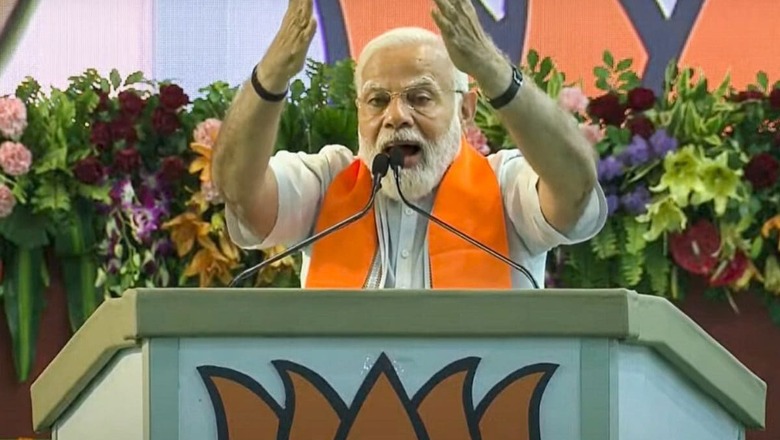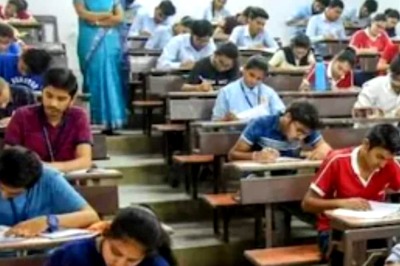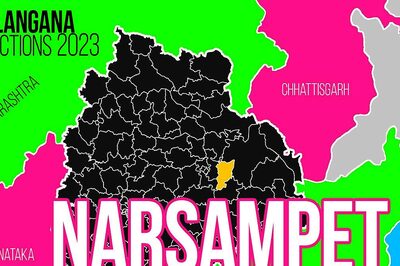
views
Beyond the dust and din of the battle for Madhya Pradesh was an interesting news nugget that was shared on social media on how BJP workers cleaned up the streets of Indore after Prime Minister Narendra Modi’s roadshow a few days back. As Madhya Pradesh, my birth state, goes to polls today to elect a new Assembly much of the public debate has been focused on the incumbency being faced by the BJP and on the prospects of its current and long serving Chief Minister Shivraj Singh Chouhan. However little attention has been paid on how nestled within Madhya Pradesh is India’s success story for local urban governance.
During a recent visit to Indore as chair of a UGC Committee setup to review Educational Media Centres, I also had occasion to visit the Devi Ahilya Vishwavidyalaya. Driving through Indore one is struck by how different the city is compared to most Indian cities. A normal sight in almost every Indian city are colonial era names for streets and landmarks or Mughal era arches, domes and minarets. This view of urban ideas is so stereotypical that even generative artificial intelligence applications Dall-E tend to picturise urban India almost always with domes and minarets. Indore on the other hand is striking for having almost no traces of either the British era or the Mughal era in its urban climes. It is unique in perhaps being India’s most distinctively Hindu city. Little wonder that it has aced the Swacch Bharat Sarvekshan as India’s cleanest city six years in a row.
Indore’s story is not just about cleanliness but about the power of collective will and visionary governance in shaping the future of urban India taking to heart PM Modi’s clarion call for a Swacch Bharat. From a comprehensive approach to waste management building the capacity to dispose of about 1,200 tonnes of waste daily through nearly 8,500 sanitation workers who operate in three shifts daily, Indore is a role model for the rest of urban India. Innovative approaches to advanced waste collection and segregation and Public-Private Partnership in waste processing have shown how turning waste into a valuable resource could also generate revenue to the local government.
While Indore’s urban governance drawing from its distinctively Hindu heritage is a beacon of hope, the manner in which gender politics has taken centre stage in Madhya Pradesh is a matter of celebration. With the BJP’s campaign for MP having overcome internal strife an embattled Shivraj Singh Chouhan, also fondly known as Mamaji, has deftly played the gender card to win over women voters. A hallmark of the Shivraj model of governance in MP over the years has been the surfeit of cash transfer schemes with a particular focus on the girl child and women voters. Back in 2014-15 during a brainstorming session in Pachmarhi, it was interesting to listen to Shivraj Singh Chouhan enumerate how from cradle to betrothal, his government had rolled out cash transfers linked to milestones through the girl child’s formative years. Starting with the Ladli Laxmi Yojana launched in 2007, aimed at improving the status of girls and to promote education, MP has seen a steady rollout of cash transfer schemes with a clear gender focus.
The financial assistance in various installments until the girl completes her education under the Ladli scheme emerged as an instrument to impact on reduce child marriage rates and to improve female literacy in the state. Further focus on supporting economically disadvantaged families during the marriage of their daughters has resulted in a scheme to provide financial assistance and reduce the economic burden. A distinguishing feature of the Mukhyamantri Kanya Vivah/Nikah Yojana are the mass weddings aimed at community building and saving costs for families. Further efforts focused on reducing maternal and infant mortality rates and institutional deliveries by providing financial incentives to mothers and health workers have seen improved maternal health and infant health outcomes.
The burden of incumbency notwithstanding, it is remarkable how much the political needle has shifted in Madhya Pradesh towards progressive issues rooted in sustainable development goals and gender empowerment. If in Indore one sees a glimpse of a developed Bharat by 2047 as envisioned by Prime Minister Narendra Modi, Madhya Pradesh will be a test case on whether Amrit Kaal will be about progressive ideas or regressive guarantees.
As the voters of Madhya Pradesh queue up at polling booths to decide on who is better placed to chart the future course for the state, it is worth posing the question if the scorched earth politics being played by the political opposition should be allowed to fritter away the progressive gains in Madhya Pradesh on empowering the girl child to showing the way on managing local urban governance. In the answer to this question perhaps lies the road ahead for the campaign to the general elections of 2024 when the rest of the country will be called upon to weigh in on this question.
The writer is the former CEO, Prasar Bharti. Views expressed in the above piece are personal and solely that of the author. They do not necessarily reflect News18’s views.

















Comments
0 comment